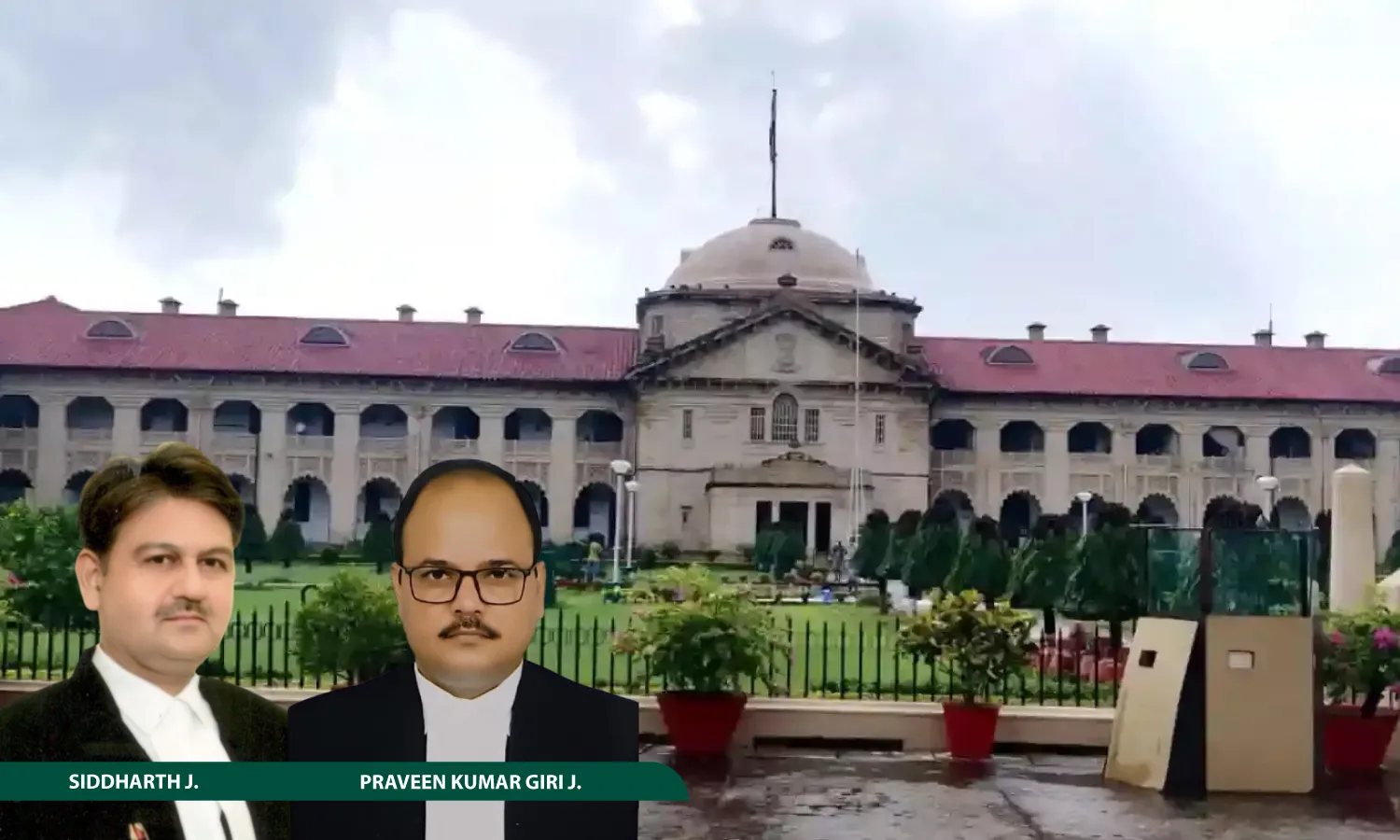"Man Can Tell A Lie But Circumstances Cannot": Allahabad High Court Upholds Conviction Of 7 Accused In Double Murder Of Teenage Girl And Her Lover
The incident, which took place on the night of February 5, 2006, in Bahsuma, Meerut, involved the killing of Sharafat and Soni, neighbours who were in a relationship disapproved by the girl’s family.

The Allahabad High Court has upheld the conviction and life sentence awarded to seven accused, including a father and his six sons, for the brutal honour killing of a 16-year-old girl and her 22-year-old lover, whose bodies were recovered from inside their house in 2006.
The Court observed that the prosecution had successfully established a chain of circumstantial evidence and held that the burden of proof under Section 106 of the Indian Evidence Act lay with the accused, which they failed to discharge.
The Division Bench of Justice Siddharth and Justice Praveen Kumar Giri held, "It is established law that a man can tell a lie but circumstances cannot. Even the witnesses who later on turned hostile have admitted that both the deceased person were killed. Though they have deposed that some unknown persons had killed the deceased but they have not attributed any motive on those unknown persons for killing the deceased. Whereas, the accused appellants had sufficient motive as they felt dishonoured because of the love affair of their daughter/sister, deceased-Soni with deceased-Sarafat and, therefore, they killed both of them."
The Bench confirmed the judgment of the Trial Court sentencing the accused under Sections 147, 302, and 149 of the Indian Penal Code (IPC) and dismissed the criminal appeals filed by the convicts challenging their conviction.
Facts of the Case
The incident, which took place on the night of February 5, 2006, in Bahsuma, Meerut, involved the killing of Sharafat and Soni, neighbours who were in a relationship disapproved by the girl’s family. The prosecution’s case was that the accused, Ibrahim, the girl’s father, along with his sons and two unidentified persons, had threatened Sharafat’s family and ultimately abducted and killed both victims inside their home.
Although several key witnesses, including the informant and other eyewitnesses, turned hostile during trial, the Trial Court convicted the accused under Sections 147 and 302 read with Section 149 IPC, relying on medical evidence, recovery of murder weapons, site plans, and the recovery of the victims' bodies from the house of the accused. The Court sentenced them to life imprisonment along with a fine.
Court's Observations
The Court noted that the investigating officer (PW-9) had submitted a topography report (Naksha Nazri), corroborated by eyewitnesses, which confirmed that the dead bodies were found within the premises of the accused. The Court held that the burden under Section 106 of the Evidence Act shifted to the accused to explain what transpired inside the house, but they failed to discharge it.
Post-mortem reports revealed horrifying details: Soni’s hyoid bones were fractured and both lungs were swollen, indicating death by strangulation, although the initial cause of death was later altered to hanging. The Court rejected the altered opinion of the medical examiner, citing that the nature of injuries pointed unmistakably to strangulation. Sarafat suffered multiple rib fractures and a lacerated lung, with the cause of death determined as hemorrhage and shock.
Key prosecution witnesses PW-1 and PW-2, both relatives of the deceased, had initially supported the prosecution’s case in both examination-in-chief and cross-examination. However, after charges were amended in 2010 to include Sections 504 and 506 IPC, the trial court ordered a de novo trial. The Court criticized this decision, holding that a de novo trial should not have been permitted under all sections but only with respect to the newly added offences.
Even though PW-1 and PW-2 later changed their stance during re-examination, the Court ruled that their original testimony remained credible and consistent with the medical and circumstantial evidence. Furthermore, the Court emphasized that even hostile witnesses had not disputed that both victims were murdered.
Dismissing the Appeals, the Court emphasized that while witnesses had turned hostile, the circumstantial evidence, including the location of the bodies, post-mortem reports confirming assault and throttling, and recovery of weapons, conclusively pointed to the guilt of the accused.
"Once the examination-in-chief as well as cross-examination of the witnesses are already recorded and their evidence is complete, thereafter, if charges are altered/amended/added, the Trial Court should restrain itself from permitting the de novo trial so as to enable the said witnesses to discard their earlier depositions. In such circumstances, the Trial Court should permit the witnesses to depose only with respect to the altered/amended/added charges," the Bench said.
The Court directed that accused Appellants Ibrahim, Kayoom, and Farukh, who were on bail, be taken into custody immediately. The remaining four accused, who are already in jail, will continue to serve their sentences.
Cause Title: Ibrahim v. State Of U.P. and Other connected matters [Neutral Citation No. 2025:AHC:49181-DB]
Click here to read/download the Order

